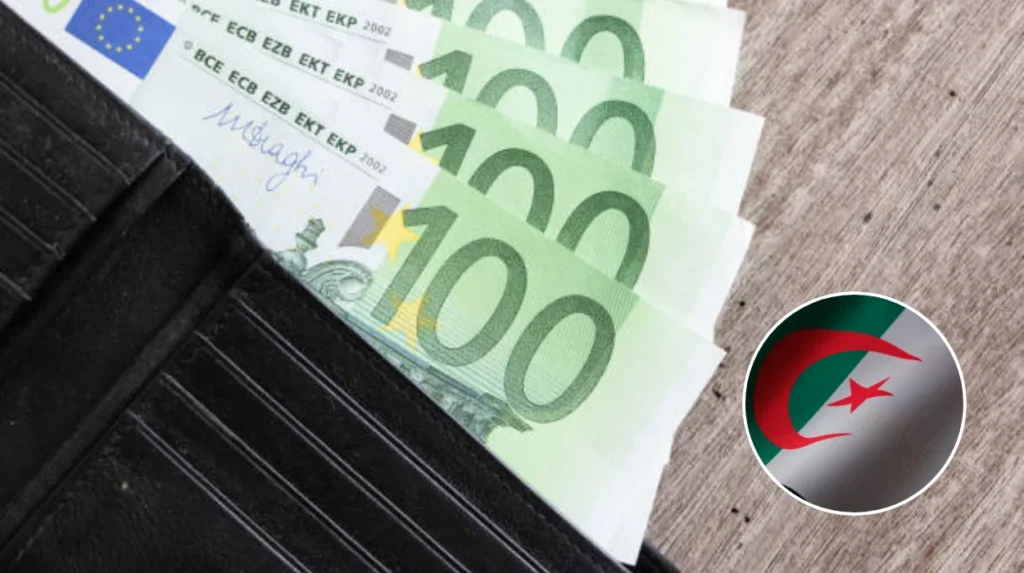The European Parliament has officially endorsed Algeria’s inclusion on the European Union’s list of high-risk countries for money laundering and terrorism financing, sparking significant political and economic repercussions. The decision, based on recommendations from the European Commission and in line with the Financial Action Task Force (FATF) findings, has drawn sharp reactions from Algerian officials and ignited debate over the motivations and implications of the move.
The European Parliament’s Decision: What Does It Mean?
The European Parliament’s recent vote has placed Algeria on the EU’s updated list of high-risk countries for money laundering and terrorism financing. As reported by the North Africa Post,
“The Algerian regime has been listed by the EU Parliament among high-risk countries for money laundering and terrorism financing. The move is expected to have serious economic repercussions for the country, viewed as a ‘rogue state’”.
The resolution, approved by European lawmakers, follows a European Commission assessment and aligns with the FATF’s “grey list” of countries under increased monitoring for deficiencies in anti-money laundering and counter-terrorist financing frameworks. This classification obliges European financial institutions to apply enhanced due diligence to transactions involving Algeria, raising the bar for financial transparency and compliance.
What Are the EU’s Stated Reasons?
According to the North Africa Post, the decision is rooted in
“widespread corruption, lack of transparency and accountability in Algeria,”
which have
“sounded security alarms over the major risks of money laundering and terrorism financing in this country controlled by the military”.
The European Commission’s report highlights systemic gaps in Algeria’s legal and regulatory frameworks, particularly in financial monitoring and enforcement.
The Central Bank of Ireland notes that the FATF placed Algeria under increased monitoring in October 2024, meaning the country has committed to an action plan to address strategic deficiencies but remains under scrutiny. The EU’s updated anti-money laundering regulations require member states and financial institutions to rigorously assess and mitigate risks from such jurisdictions.
What Are Algerian Officials Saying?
As reported by the MENA Research Center, Finance Minister Abdelkrim Boulzard faced parliamentary criticism over Algeria’s negative international ratings. Ahmed Rebhi, MP from the National Liberation Front, told the minister that the government
“did not pay attention to repeated warnings from MPs regarding the country’s unfavourable international ratings related to monitoring suspicious financial activities.”
Rebhi described Algeria’s inclusion on the FATF’s “grey list” as “shameful,” noting that the list includes countries with limited legal and material capacity to counter money laundering.
Minister Boulzard responded,
“We have made great efforts to avoid international indicators linked to low compliance with anti-money laundering standards, especially since the ‘Black Decade’ of the 1990s,”
referencing Algeria’s history with terrorist groups funded through suspicious means. He added,
“We will exit the list again, but there’s always a chance of returning,” likening money laundering to “a thief always seeking a way in, regardless of precautions”.
Are There Reforms Underway?
As reported by the MENA Research Center, Algeria has intensified efforts to exit the FATF’s grey list by issuing a decree at the end of last year to strengthen its legal framework. The decree mandates:
- Immediate freezing of funds linked to suspicious individuals or entities
- Strict oversight on banks and non-financial professions
- Prompt reporting of matches with sanctions lists
- Establishment of a central authority to manage confiscated assets
- Limitation of activities of sanctioned individuals (with humanitarian exceptions)
- Reduction of compliance requirements from 74 to 13 points as part of Algeria’s plan to align with FATF standards
Minister Boulzard stated,
He also confirmed that Algeria will meet with FATF in Luxembourg in late September, followed by a general assembly in October to evaluate the country’s progress.
“We are in the final stage of preparing a report, drafted by the National Committee for Risk Assessment and the Financial Intelligence Unit. We have addressed nearly all concerns and have completed about 95% of the required work. The report is expected to be finalised by the end of this month and submitted in late July.”
How Will This Affect Algeria’s Economy?
The North Africa Post warns that the EU’s decision
“will hit hard the Algerian oil-dependent economy, leading to the defection of foreign investors, loss of international trust, a surge in inflation & unemployment and stagnation”.
The classification as a high-risk country imposes strict financial scrutiny and harms Algeria’s international financial and economic image, potentially discouraging foreign investment and increasing transaction costs.
According to the MENA Research Center, being on the grey list is not a legal penalty but a regulatory signal indicating strategic deficiencies. However, the repercussions can resemble sanctions, including reduced investor trust, tighter international banking controls, and higher transaction costs. The listing requires countries to implement an action plan under FATF supervision within a specified timeframe and serves as a global warning demanding urgent reform.
Are There Political Motivations Behind the EU’s Move?
The MENA Research Center reports that Algerian officials have suggested France may have influenced the EU decision due to ongoing political tensions between the two countries. Local media noted that while Brussels framed the decision as a technical move aligned with EU financial protection policy, political analysts and commentators questioned whether it overlooked Algeria’s substantial legislative and regulatory progress, hinting at underlying political motives.
What Is the Broader Context of the EU’s Anti-Money Laundering Efforts?
The EU has been continuously updating its anti-money laundering and counter-terrorist financing frameworks. As detailed by the Council of the European Union, new regulations adopted in May 2024 aim to harmonise and clarify rules across the EU, close loopholes, and ensure that all related risks are tackled, including those arising from technological innovation and the global nature of terrorist organisations. The new rules expand due diligence and reporting obligations to sectors such as crypto-assets, luxury goods, and professional football, reflecting the EU’s determination to address emerging vulnerabilities.
What Is the FATF’s Role and What Happens Next?
The Central Bank of Ireland and the MENA Research Center confirm that Algeria is currently under increased monitoring by the FATF, which means the country must implement an action plan to resolve identified deficiencies. Algeria’s government has pledged to exit the FATF grey list by early 2026, with ongoing legislative reforms and cooperation with international bodies.
What Are the Next Steps for Algeria?
Algeria intends to finalise and submit its compliance report to FATF by the end of July, with further evaluation meetings scheduled for September and October in Luxembourg. The government has emphasised its commitment to aligning with international standards and restoring investor confidence. President Abdelmadjid Tebboune and other officials maintain that reforms are part of a “national plan” developed in coordination with FATF and that Algeria has made significant progress, particularly in financial transparency and the recovery of embezzled funds.
The European Parliament’s decision to include Algeria on its list of high-risk countries for money laundering and terrorism financing has ignited a complex debate over financial transparency, international relations, and the future of Algeria’s economy. While EU authorities cite technical deficiencies and systemic risks, Algerian officials argue that the decision is politically motivated and that reforms are already underway. The coming months will be crucial as Algeria seeks to address international concerns, restore its reputation, and navigate the economic and political fallout of its new classification.







